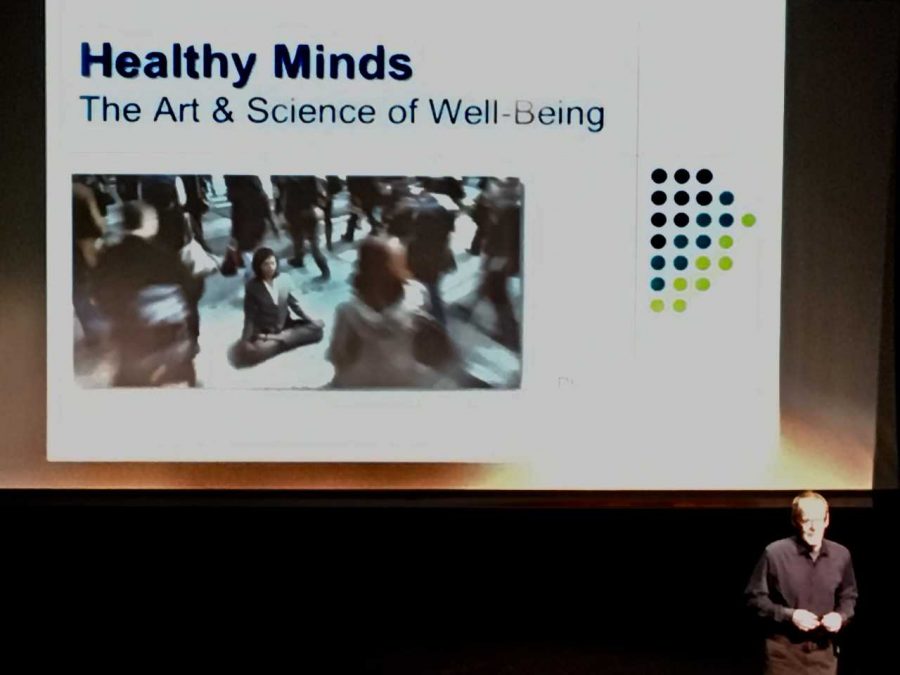Healthy Minds Convocation
April 20, 2019
On Tuesday, April 9, Lakeland University hosted Healthy Minds, a convocation in the Bradley Theater. Speaker Philip Chard discussed the importance of maintaining a healthy mindset, what can cause an unhealthy mindset and tips on improving mindfulness.
Chard is a psychotherapist and the president/CEO of Empathia, Inc., a nationwide behavioral services firm that provides health, safety, and productivity solutions for over 400 organizations around America. Chard is also a columnist, book author, trainer, speaker, and consultant.
The convocation focused on maintaining wellness over time. According to Chard, “8 in 10 adults report feeling significantly stressed on a daily basis. 44% report their stress has increased substantially in the past 5 years. 1 in 3 feel largely satisfied with their life.” Chard also said that suicide rates across the U.S. have been directly related to the rise of stress.
There are many challenges that we face on a day-to-day basis that contribute to issues with our well-beings. For example, technology has a strong influence on one’s well–being. Technology is very fast paced and can cause hurry sickness. According to Psychology Today’s website, “hurry sickness is a behavior pattern characterized by continual rushing and anxiousness; an overwhelming and continual sense of urgency.”
Chard said that, “we are interrupted by technology at least 30 times per hour.” We tend to lose focus of the task at hand and cause an interruption in memory consolidation. According to Chard, memory consolidation is the transfer of memory from our working memory to long term memory that allows us to make connections with knowledge that we already have and learn new information.
“A healthy mind is mindful, emotionally responsive, emotionally intelligent, engaged, and resilient,” Chard said. Chard also explained the difference between a growth mindset and a fixed mindset. A growth mindset learns even if a person is upset or fails. A fixed mindset gives up when a person fails.
Chard talked about what it means to be mindful or possess mindfulness. One must have emotional self-awareness, emotional self-regulation, focus on the present, and pro-social behaviors. Emotional intelligence and mindfulness go hand–in–hand. Chard concluded with ways to avoid over–stressing and relax more to reset our minds, such as meditation and brain reboot. Being present during daily activities can help reboot our brains to focus on the now. Things like washing dishes, taking a shower, and brushing our teeth are things that we do daily during which we tend to let our thoughts wander and we begin thinking about other things. We tend to let our thoughts get in the way of our focus on individual tasks.
Chard concluded by challenging us meditate and control our thoughts. Meditation is a form of focused awareness. Meditating for 10 minutes a day can make a difference in a person’s focus and mindfulness. By taking time to be mindful, focusing on current tasks, and taking deep breaths daily, people can reduce anger, anxiety, and agitation.


